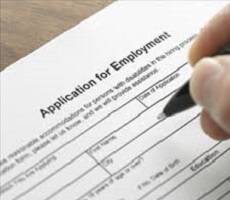September 13, 2016
Sensory response to workplace environment influences performance 0
 Improving employees’ physical and emotional response to their working environment – from the look and feel of a workplace to non-visual sensory inputs such as smell, noise and temperature – can significantly improve productivity and cognitive performance, a new report suggests. According to Decoding the workplace experience: how the working environment shapes views, behaviours and performance, experience is not just about how well the workplace satisfies functional needs, it is about the overall impression it leaves on the user and the way an employee experiences an environment is emotional and occurs potentially at a subconscious level. Sensory influences such as the smell, noise and temperature of the working environment are among the main factors that influence employees’ experiences of the workplace and impact thier performance. Expectations of the workplace also change depending on personality, background and numerous other factors; which is why understanding your workforce is the key to creating an effective workplace experience.
Improving employees’ physical and emotional response to their working environment – from the look and feel of a workplace to non-visual sensory inputs such as smell, noise and temperature – can significantly improve productivity and cognitive performance, a new report suggests. According to Decoding the workplace experience: how the working environment shapes views, behaviours and performance, experience is not just about how well the workplace satisfies functional needs, it is about the overall impression it leaves on the user and the way an employee experiences an environment is emotional and occurs potentially at a subconscious level. Sensory influences such as the smell, noise and temperature of the working environment are among the main factors that influence employees’ experiences of the workplace and impact thier performance. Expectations of the workplace also change depending on personality, background and numerous other factors; which is why understanding your workforce is the key to creating an effective workplace experience.













 According to new research from the Chartered Institute of Personnel and Development, the number of people saying that they have experienced mental health issues while in employment has climbed from a quarter to a third over the last five years. Despite this, the majority of employees still don’t feel that people experiencing mental health issues are supported well enough at work. In response, the CIPD is calling on organisations to take a more preventative approach to employees’ mental wellbeing, encouraging a culture of openness in their workplace, whilst at the same time, training line managers to provide and signpost support for employees, in order to create healthier, more engaged and more productive workplaces. The new research from the CIPD claims that in 2016, almost a third (31 percent) of the over 2,000 employees surveyed said they have experienced a mental health problem at some point during their working life, compared with a quarter (26 percent) in 2011.
According to new research from the Chartered Institute of Personnel and Development, the number of people saying that they have experienced mental health issues while in employment has climbed from a quarter to a third over the last five years. Despite this, the majority of employees still don’t feel that people experiencing mental health issues are supported well enough at work. In response, the CIPD is calling on organisations to take a more preventative approach to employees’ mental wellbeing, encouraging a culture of openness in their workplace, whilst at the same time, training line managers to provide and signpost support for employees, in order to create healthier, more engaged and more productive workplaces. The new research from the CIPD claims that in 2016, almost a third (31 percent) of the over 2,000 employees surveyed said they have experienced a mental health problem at some point during their working life, compared with a quarter (26 percent) in 2011.
 UK growth had already eased from around 3 percent in 2014 to around 2 percent before the EU referendum due primarily to slower global growth, but the Brexit vote to leave the EU is likely to lead to a significant further slowdown. UK GDP growth is forecast to decelerate to around 1.6 percent in 2016 and 0.6 percent in 2017 according to
UK growth had already eased from around 3 percent in 2014 to around 2 percent before the EU referendum due primarily to slower global growth, but the Brexit vote to leave the EU is likely to lead to a significant further slowdown. UK GDP growth is forecast to decelerate to around 1.6 percent in 2016 and 0.6 percent in 2017 according to 

















October 25, 2016
Millennials have just the same needs for peace and quiet as everybody else 0
by Steven Lambert • Comment, Wellbeing, Workplace design
(more…)